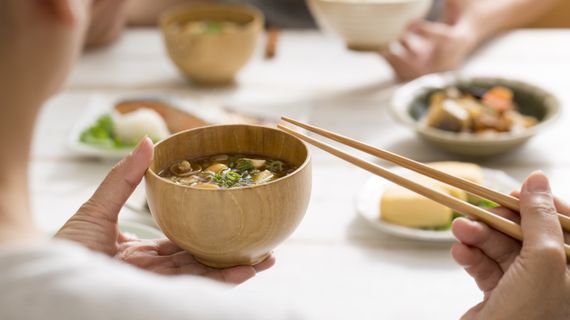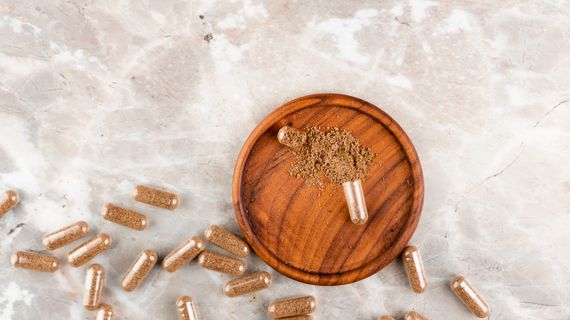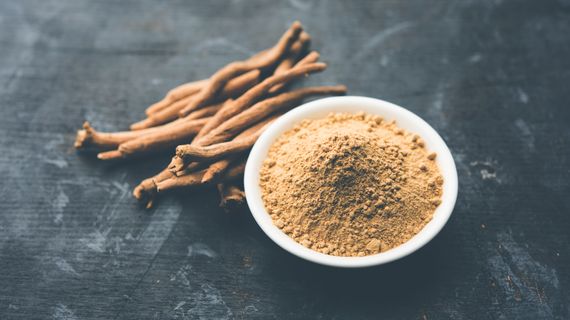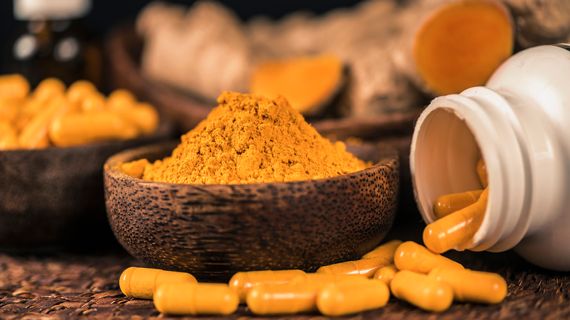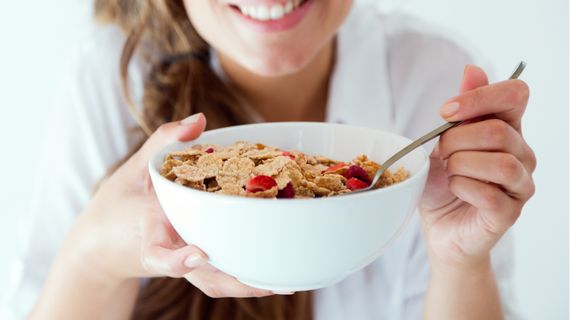- Natural nootropics are plant extracts that have a positive effect on brain function.
- They have been used for centuries in traditional folk medicine, and their effectiveness is also supported by scientific studies.
- When choosing nootropics, focus on the dosage and the quality of the extracts used.
Nootropics positively affect brain function, including memory, attention and the ability to process information. In most cases, these are plant extracts that have a direct or indirect effect on brain function.
Welcome to the world of herbs!
Medicinal plants and their herbal extracts have been used for centuries to support brain function. However, it has only been in the last few decades that Western medicine has become interested in their effects, and they have become the subject of scientific studies.
Studying the effects of herbal extracts is certainly not an easy discipline. Often, it is not known in advance which substances are truly effective, what the exact mechanism of action is or even what quantity is optimal. The fact that plants of different origins have different compositions, as well as their extracts, complicates the research.
Let us now take a look at the herbs used for centuries that are nowadays backed by scientific studies.
1. Bacopa Monnieri (Brahmi)
Brahmi, native to India, is commonly used in Eastern Ayurvedic medicine. The main active ingredients are bacosides (Bacoside A and Bacoside B), which constitute approximately 10% of the dried plant.
The primary effects of Brahmi include the promotion of memory, likely achieved through the growth (branching) of dendrites and more efficient signal transmission between individual neurons. Interestingly, increased branching of the neuronal network has also been observed in young individuals (found in animal studies).
Currently, the optimal dose appears to be approximately 150mg of bacosides per day. This corresponds to approximately 1.5g of dried plant or 300mg of plant extract. The active substances are hydrophobic in nature (they do not dissolve in water), so it is advisable to take them with food.
2. Ginkgo Biloba
The use of Ginkgo originates from traditional Chinese medicine, and it remains one of the best‑selling plant extracts for memory support. The Japanese capital, Tokyo, even uses Ginkgo biloba as its symbol.
Ginkgo biloba is most commonly used for memory support in the elderly, aiming to maintain healthy cognitive function in those who might otherwise experience cognitive decline or develop neurodegenerative diseases due to ageing. However, scientific studies are inconsistent regarding its effectiveness, with some showing positive results and others observing virtually no positive effects.
Ginkgo biloba is most often taken in the form of plant extracts. As a dietary supplement, the recommended dose is typically 60‑120mg per day, up to 240mg per day when indicated by a physician. The preparations are usually standardised to 24% flavonoglycosides and 6 % terpenolactones (24/6 extract). Due to possible contraindications, it is also advisable to consult a physician when taking Ginkgo; coadministration with drugs like Warfarin and other anticoagulants can be problematic, as Ginkgo biloba may reduce blood clotting.
3. Centella Asiatica (Gotu Kola)
The use of Gotu Kola, like Brahmi, is associated with Ayurvedic medicine, traditionally taken in the form of a drink or together with ghee. The main active ingredients are saponins, including asiaticosides, for which extracts are often standardised.
The use of Gotu Kola is somewhat interchangeable with the use of Brahmi, and a synergistic effect is expected. The underlying mechanism is again the increase (branching) of the dendritic network, resulting in more efficient interconnection of nerve cells.
The optimal dose is estimated to be the use of 500mg of the extract once or twice a day. The quality of the extracts used varies in studies, but an extract standardised to 10% saponins can be considered the standard.
4. Panax Ginseng C. A. Mey (True Korean ginseng)
Korean ginseng root is one of the most valuable plant substances used in traditional Chinese medicine. The main active ingredients are saponins, collectively called ginsenosides, which are divided into three categories: protopanaxadiols, protopanaxatriols and oleanolic acid. The first two groups of substances appear to be central to cognitive support.
True Korean ginseng is sometimes called the "king of herbs" because its effects range from supporting immunity to enhancing cognitive function and physical performance. Taking true ginseng supports cognitive function in both healthy individuals and those with Alzheimer's disease.
A dose of 400mg of an extract containing 4 or 10% ginsenosides per day is most commonly cited to support brain function. However, extracts containing >60 % ginsenosides are also available on the market, in which case the dose can be reduced several times.
Korean Ginseng Extract
5. Rhodiola Rosea
Rhodiola rosea is a popular adaptogen that grows at high altitudes (up to 2300m) in the northern parts of Europe, Asia and America. All species of Rhodiola rosea are characterised by salidroside and rosavin content, for which the extracts are also standardised.
Rhodiola extract t finds its primary use as an anti‑stress herb, which also has a positive effect on anxiety and cognitive function. A human study found memory support in individuals who took a preparation containing 200mg of Rhodiola extract along with magnesium and vitamins B6, B9, B12, D and E.
Recommended daily dose depends on the concentration of the product. For a dietary supplement with 1% rosavin, the dose is 360‑600mg; with 2% rosavin, it is 180‑300mg and for 3.6% rosavin, it is 100‑170mg.
| Bacopa Monnieri | Ginkgo Biloba | Gotu Cola | Panax Ginseng | Rhodiola Rosea | |
| Origin | India | China | India | Korea/China | Nordic regions |
| Active ingredients | Bacosides | Flavonoids, terpenoids | saponins (asiaticosides) | saponins (ginsenosides) | rosavin, salidrosides |
| Effect | memory support | maintenance of cognitive function | memory support | support concentration and memory | adaptogen |
| Daily dose | 150 mg of Bacosides | 60‑120 mg (24/6 extract) | 500 mg (10% saponins) | 400 mg (10 % ginsenosides) | 360‑600 mg (1 % rosavin) |
Bottom line
Plant extracts from traditionally used plants are an effective way to safely support brain function. Through various mechanisms, they contribute to protecting nerve cells from damage and to more efficient transmission of nerve signals.
From traditional Ayurvedic medicine, it is worth mentioning Brahmi and Gotu Kola, which support memory through a wider branching of the dendritic network. Nor should we forget the most famous plants of Eastern medicine, Ginkgo biloba and Korean ginseng, the latter in particular having very promising results in studies on cognitive function. Another interesting plant is the Rhodiola, which acts as an adaptogen and, especially under stressful situations, can support thinking and resistance to external pressure.







